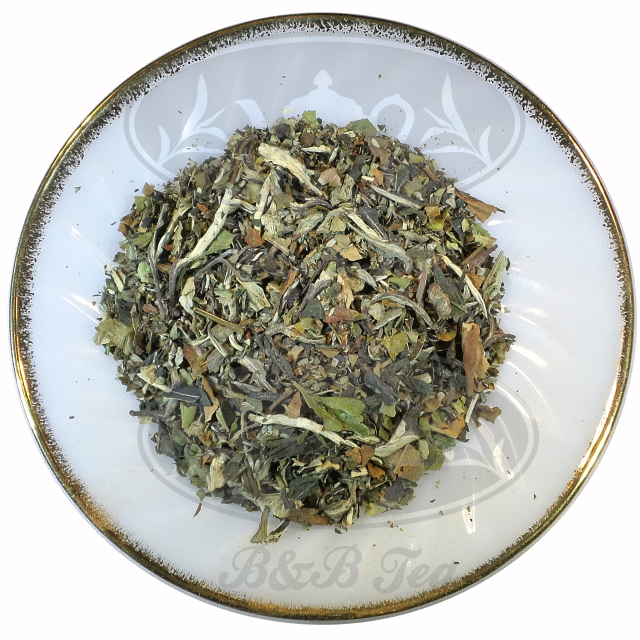- Flavored
- >
- Peach Apricot White
Peach Apricot White
SKU:
$1.25
1.25
34.75
$1.25 - $34.75
Unavailable
per item
Description
Has muscatel-like notes that are reminiscent of premium 2nd flush Darjeelings with light fruit finish.
Tell Me MoreSimply superb! An amazing combination. Has muscatel-like notes that are reminiscent of premium 2nd flush Darjeelings with light fruit finish.
Ying and Yang. Each side of the equation balances out the other. The combination of Peach and Apricot follows the same principal - well kind of anyway. According to Chinese folklore, peaches are a potent symbol of long life, conferring longevity on all those who eat them. This belief stems from ancient legends that tell us the fruit was a favorite of the 8 Immortals, divine beings who populated Chinese myth. In the legends, one of the 8, Yu Huang, also known as the Jade Emperor was married to a woman named Xi Wangmu, Queen Mother of the West. Xi Wangmu owned a tree that produced peaches of immortality that she would serve to Yu Huang's immortal companions during an annual feast known as Pantao Hui, or the Feast of Peaches. So, peaches stand for long life, the Yin of our equation. What then about our Yang, the apricot? Well, according to Chinese tradition, apricots are a symbol of cowardice. (Good thing they taste so deliciously sweet!) One could argue that it takes courage to live a long life, courage being the opposite of cowardice. So then cowardice is the opposite of courage. Ok, maybe it's a bit of a stretch. Whatever the case may be, the combination of peaches and apricots together is heavenly. The combination of peaches and apricots blended with a top grade Pai Mu Tan tea from Fujian even more so. Delicate hints of citrus finish with faint lingering notes of honey layered over the thick jammy character of this full-bodied tea. Pour yourself a cup and ponder the nature of a long life courageously lived! |
Brewing for Best ResultsIdeal Brewing Temperature: 180°F/82°C.
Modern Method: Bring filtered or freshly drawn cold water to 180°F/ 82°C. With an infuser, use 1 slightly heaping teaspoon of loose tea per 8 oz of fluid water. Steep 3-5 minutes according to taste (the longer the steeping time the stronger the tea). Traditional Method: When preparing by the traditional method, this tea can be used repeatedly - about 3 - 4 times. Bring filtered or freshly drawn cold water to 180°F/ 82°C. Place 1 slightly heaping teaspoon of loose tea per 8 oz of fluid water. Pour the prepared water directly over the leaves after the rinse. Steep for about 2 minutes then remove leaves. |
origin
Tea(s) From: China Region(s): Fujian Province ingredients
Luxury Ingredients: White tea, Natural flavors iced tea instructions
Per Serving: Bring filtered or freshly drawn cold water to 180°F/ 82°C. Place 1 slightly heaping teaspoon of loose tea per 7-9 oz of fluid water. Steep 5 minutes. Add filtered hot tea to 16 oz glass filled with ice. Per Pitcher: Makes 1 Quart. Bring filtered or freshly drawn cold water to 180°F/ 82°C. Place 6 slightly heaping teaspoon of loose tea in a heat resistant container. Pour 1 ¼ cup of prepared water over the tea leaves. Steep 5-7 minutes. With a fine mesh sieve, filter the hot tea liquor to the serving pitcher filled with ice. Add cold filtered water to top off. (Some luxury teas will turn cloudy when poured over ice). brewing tips
Making an amazing cup of tea requires several things. High quality tea, filtered or freshly drawn cold water, correct water temperature, time of infusion, and filters/infusers. Unfiltered water or too hot of water can ruin the best of teas. Always use filtered or freshly drawn cold water. Any flavor from water treatments or heavy minerals such as lime or calcium can taint the water. Brew at the ideal temperature. Too hot of water can scorch the leaves and produce a bitter brew. If you find that the tea is still bitter following the recommended brewing temperature, try lowering the brew temperature another 5 to 10 degrees. Use infusers that allow the tea leaves to fully expand and has full contact with the water. Ditch the tea bags. Know the steeping time for your tea. Too long of steeping can make your tea bitter and undesirable. Too short of time will make a weak tea. Don’t make tea in the microwave. food safety
We strongly recommend using filtered or freshly drawn cold water brought to a rolling boil when brewing all types of tea. Today’s water has been known to carry viruses, parasites and bacteria. Boiling the water will kill these elements and reduce the potential incidence of water-borne illness. Cool the water to the ideal brewing temperature before brewing. |

